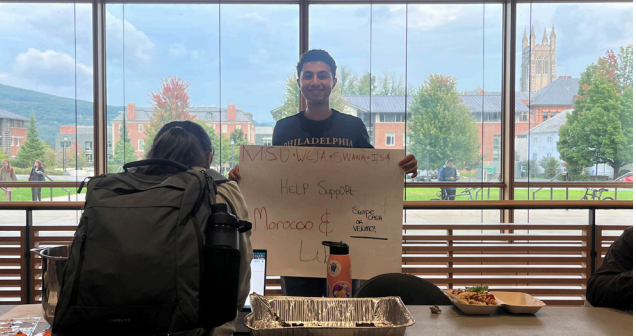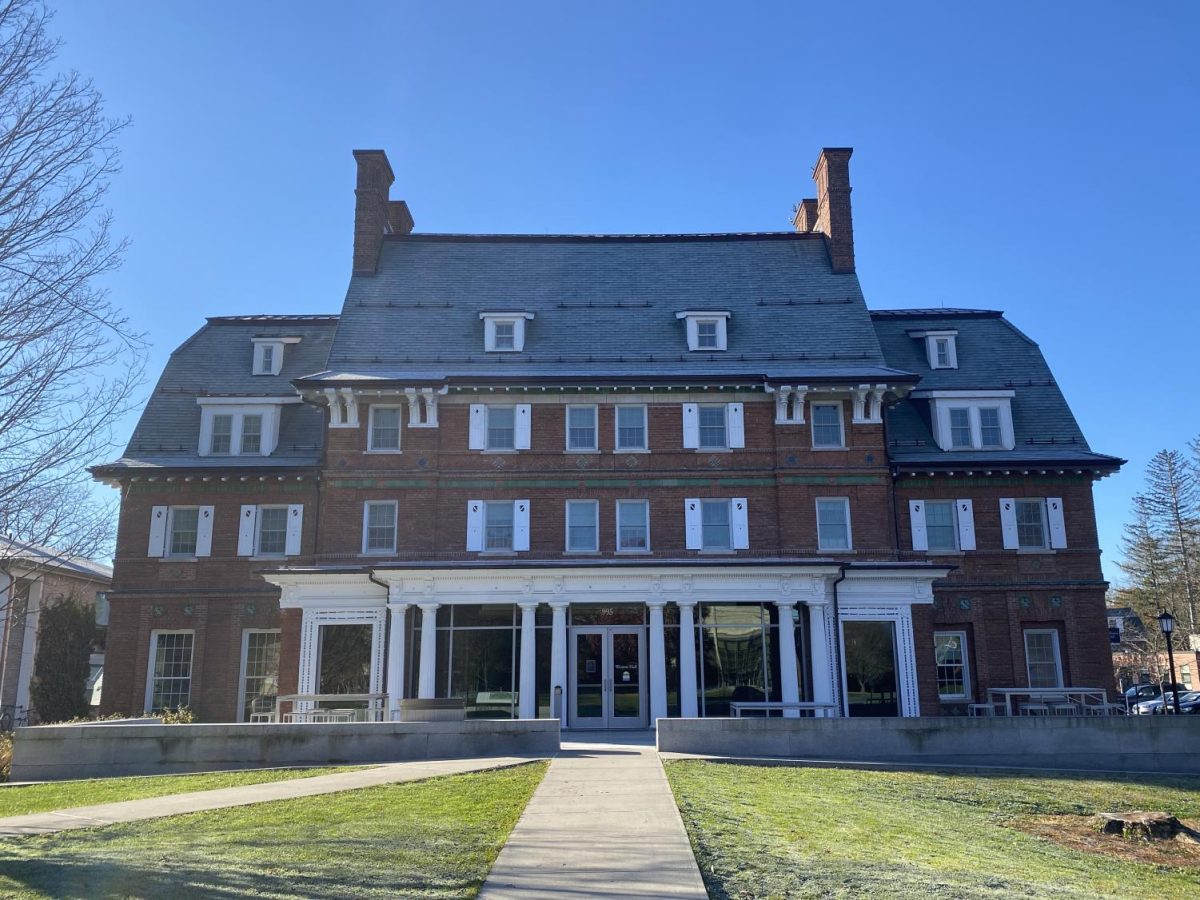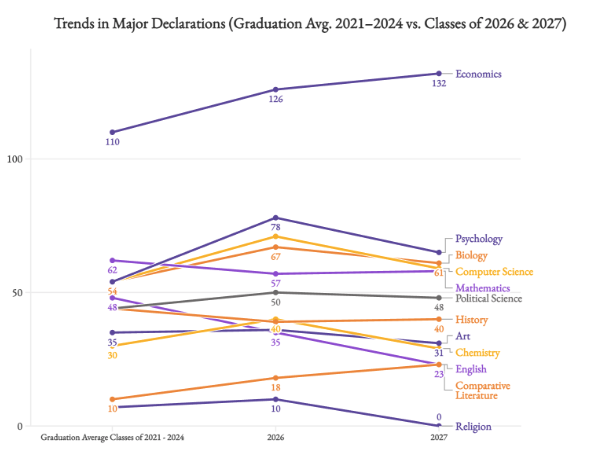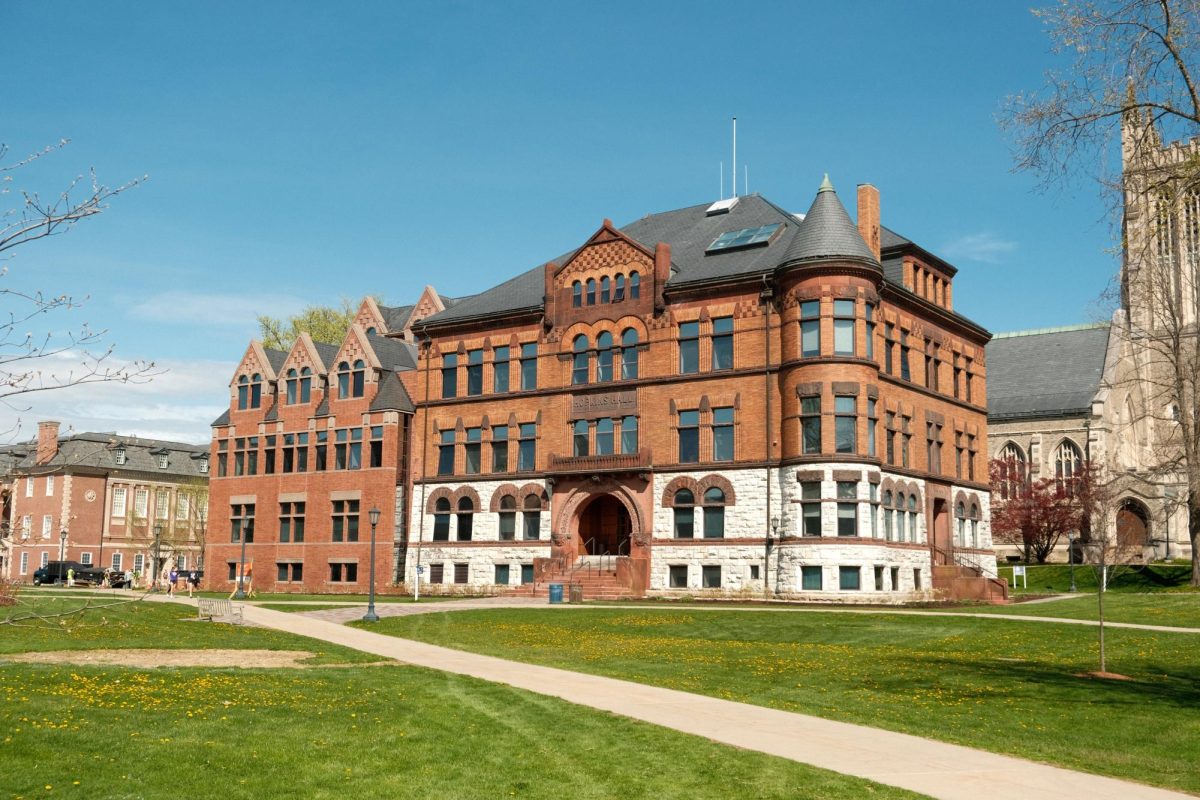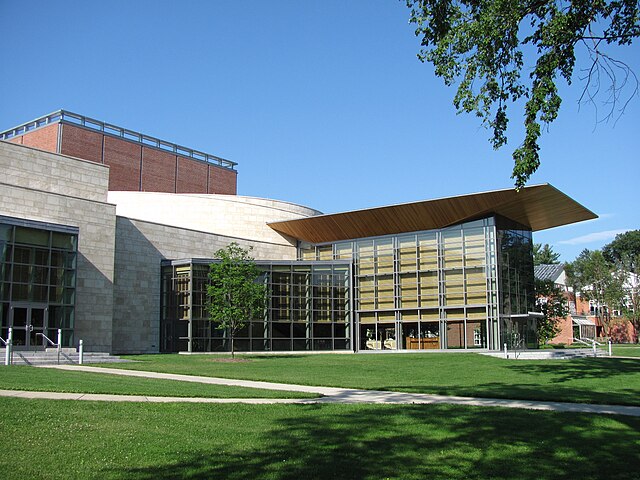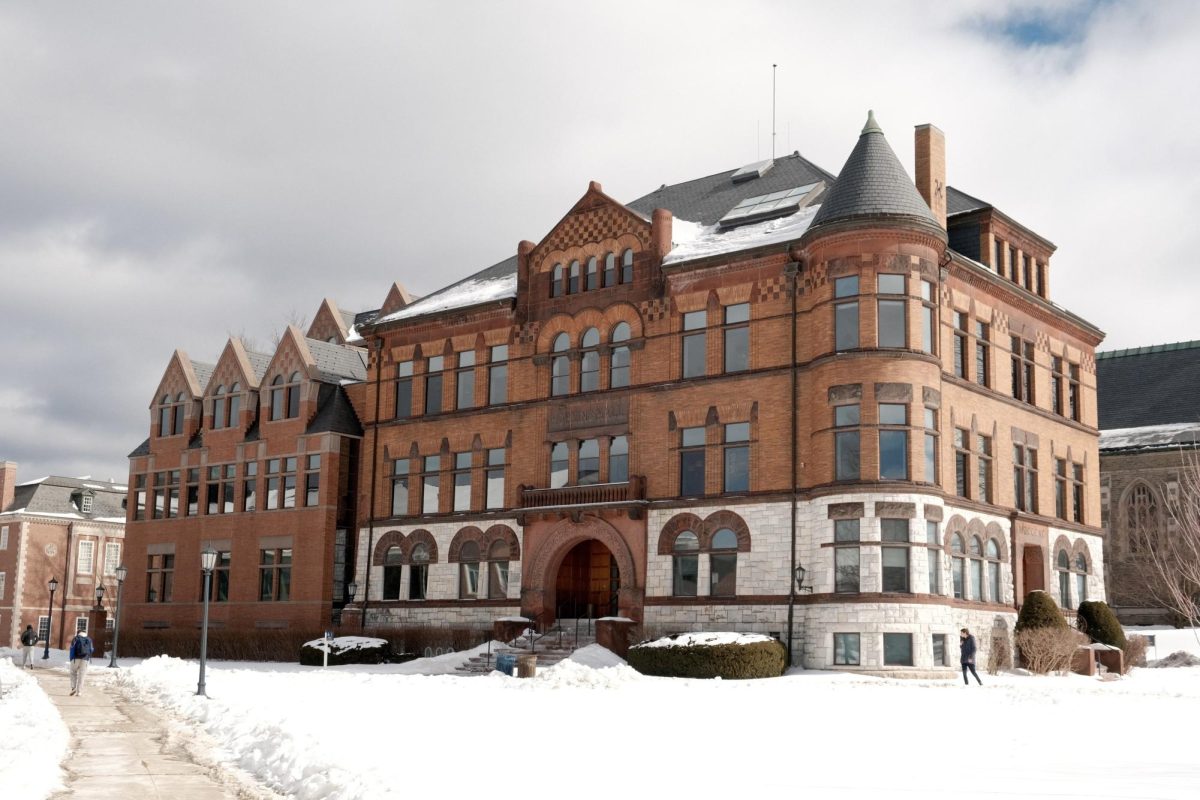Student groups hosted a bake sale and meal swipe donation drive on Monday and Tuesday in Paresky Center to support those affected by the recent earthquake in Morocco and flooding in Libya.
Proceeds from the event, which was hosted by the Muslim Student Union (MSU), International Student Association (ISA), Southwest Asian and North African Student Union (SWANA), and Williams College Jewish Association (WCJA), will go to a GoFundMe started by Associate Professor of Arabic Studies Brahim El Guabli.
The GoFundMe has received $108,562 in donations by the time of publication.
The death toll of the magnitude-6.8 earthquake that struck Morocco on Sept. 8 has surpassed 2,000, according to the U.N. Office for the Coordination of Humanitarian Affairs (OCHA). OCHA has also stated that at least 3,958 people have died and more than 9,000 remain missing from the Sept. 10 floods in Libya, though there have been conflicting reports about the death toll.
Nadim Stambuli ’25, cochair of MSU, spearheaded the initiative. He first decided to hold a fundraiser while talking to Mohammad Faizaan ’23, who was visiting campus just as the news of the earthquake spread across the globe. Stambuli and Faizaan were driving to purchase donuts for an MSU event when Faizaan suggested organizing an event to help those in Morocco. The next day, on Sept. 10, Stambuli hosted an impromptu bake sale by himself, making about $300. “We had a lot of donuts left over, so I just came [to Paresky] with the box of donuts and a Venmo account and sold some,” Stambuli said.
After his impromptu bake sale, Stambuli reached out to other affinity and faith groups, as well as the chaplains’ office and the Davis Center, to organize a larger fundraiser. ISA, SWANA, and WCJA assisted with making posters and signing up to work at the bake sale.
Stambuli was motivated to take action by his belief in the importance of charity, one of the five pillars of Islam. “A big thing in Islam is not taking more than your share,” he said. “It’s very clear to me as a student here [that] I’m surrounded by affluence. And I have family in Lebanon [and] Egypt, where it’s really hard for them. So I see that discrepancy, and I see that I’m surrounded by things that are way more than my share, so I’m just trying to redistribute. That’s the main effort.”
Muslim Chaplain Sidra Mahmood stressed the importance of charity in the Qur’an, pointing to a verse saying “cooperate with one another in goodness and righteousness, and do not cooperate in sin and aggression.”
“The cooperation of multiple student organizations exemplifies the spirit of Islam that, no matter what our identities or beliefs, but where there is goodness in a matter such as charity, we all come together to cooperate towards that goodness,” she said.
Stambuli said he believes in the existence of a higher power and the duty that individuals take on in light of that higher power. “Ultimately [in Islam], it’s the recognition that nothing really belongs to you,” he said. “The promise of having a material possession is kind of illusory… At any moment, something could be taken away from you. It’s important to help people who are needy and who have bad fortune, because it’s a matter of having sympathy and compassion.”
WCJA Education Chair Hannah Adams ’25 said that because the fundraiser occurred on Yom Kippur, a day of fasting for Jewish people, it presented an easy opportunity for many Jewish students to donate meal swipes.
“We just put out a form and a little statement in our weekly newsletter, the Schmoozer, and also our GroupMe with many of the members of WCJA on campus encouraging people to sign up, help with the tabling for the fundraiser, donate their swipes, and also purchase baked goods at the bake sale on Tuesday,” Adams said.
In Judaism, Yom Kippur is a day of atonement for one’s sins but also an opportunity to do a “mitzvah,” a good deed, and engage in “tikkun olam,” the act of repairing the world. “It’s traditional to do some sort of food drive on Yom Kippur,” Adams said. “So I think that this bake sale and food swipe donation is in keeping with the themes of traditional Yom Kippur activities. But I do think on Yom Kippur, we take it upon ourselves to examine where we missed the mark in the past year and also commit to being better, making the world better in the coming year.”
Creating interfaith unity is also a priority for both MSU and WCJA, according to Stambuli and Adams. “All of these traditions, all of these customs that define different faith groups come from the same place,” Stambuli said. “You work together to help people. You show that you should be willing to give up something as small as a meal swipe or a few dollars.”
The fundraiser succeeded in that regard, bringing together different faith and identity groups under the common goal of helping those in need. “I think this international tragedy is an opportunity for us to ponder about our role as stewards of the earth, especially in regards to climate change and our role as Americans to how we impact the rest of the world, especially the Global South,” Mahmood said.



